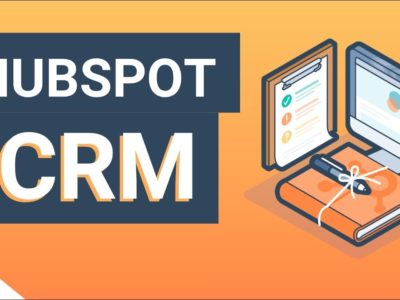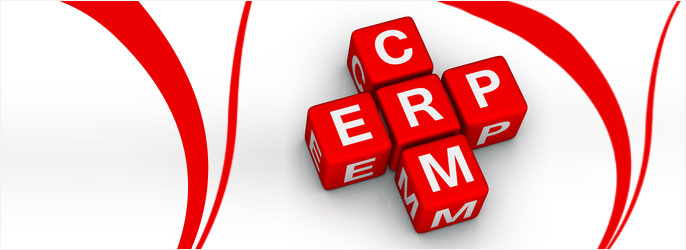
Integrating ERP With CRM Systems

When we implement new ERP software for our clients, we typically view CRM as one of several important cornerstones of the rollout. However, the fact that CRM systems can often deliver great value at a lower cost than a full ERP system, coupled with the fact that more conservative organizations are often less likely to bite off an entire ERP deployment all at once, means that many of our clients pursue CRM implementations without necessarily committing to a full enterprise solution.
Sign up to get FREE CRM Trial
The strategic moves of CRM and ERP vendors also support this trend. For example, Microsoft Dynamics CRM, SAP CRM and Oracle Siebel CRM are all marketed as standalone products, as well as part of each respective vendor’s broader ERP system. In addition, Salesforce has made great inroads as a leading, SaaS-based solution that focuses primarily on CRM functionality.
With all of these options in the marketplace, most organizations have a multitude of options to choose from when defining their enterprise software roadmaps. Here are a few things to keep in mind when determining how to integrate ERP with your CRM system:
2. When choosing a CRM system, don’t back yourself into a corner as it relates to your future ERP system. Although choosing a standalone CRM system can be a viable option for many organizations,you also want to make sure that your decision in this area doesn’t limit your options when deploying a new ERP system in the future. For example, one of our mid-size manufacturing and distribution clients in Ohio was considering a purchase of CRM but wanted the option to integrate with Oracle JD Edwards in the future. They found that some of JD Edwards’ product configuration and PLM functionality wouldn’t integrate well with CRM so they had to choose whether or not to sacrifice potentially better CRM functionality in the interest of better integration with their back office functions. They chose to make that compromise based on our recommendation, by the way, and such tradeoffs are important to understand before getting too far along in the process.
3. Understand the integration capabilities of your CRM system. Standalone systems such as Salesforce CRM have built some fairly robust integration tools so whether or not a CRM package will integrate with leading ERP systems is usually a moot point. However, simply because they integrate doesn’t mean they will integrate the way you want them to. Again using the example above, we found that certain product configuration details desired by our Ohio client’s sales team would not integrate well without extensive customization and changes to their CRM system architecture. Understanding the details of how your ERP and CRM systems may integrate now or in the future is a critical part of any software evaluation and implementation planning process. Similarly, you’ll also want to understand how your CRM will integrate with other software, such as business intelligence, product lifecycle management, quality assurance and other non-ERP solutions.
4. Don’t bite off more than you can chew. Even though you’ll want to make a decision that’s best for your long-term enterprise solution, you don’t necessarily need to implement or even purchase various solutions all at once. For example, our Ohio client chose to leverage our assistance to procure and implement their CRM system in a separate phase well before they even began planning for their ERP implementation. Because we had done the due diligence to define the long-term systems roadmap, we will be able to implement and integrate their chosen ERP system when they are ready.
5. Get your sales team on board. Regardless of whether you choose one single ERP solution, a standalone CRM system or a SaaS offering, your sales team will be critical to the success of the implementation. When implementing large transformation projects for our clients, we often find that the sales team can be among the hardest employees to get on board because of the extra work it creates for them in the short-term and the temporary pull from their commission-generating activities. As relatively simple as a CRM implementation may sound, an organizational change management plan will be critical to mitigating these organizational risks.
While the relative simplicity of a CRM implementation may seem appealing when compared to the risks of most ERP implementations, it is important to not be complacent when understanding the long-term implications and risks of whatever path you may choose. An independent evaluation and implementation will help ensure that these tradeoffs and risks are objectively considered as part of your CRM selection and implementation process.
Click here to Contact Us.


